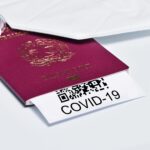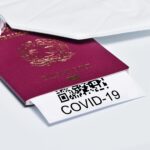Table of Contents
- Unveiling the PGP 2025 Intake Process: What Sponsors Must KnowIndispensable Eligibility Requirements for PGP 2025 SponsorsThe Critical Financial Undertaking: Meeting the PGP 2025 MNICore Considerations for the PGP 2025 Application ProcessA Vital Alternative: Exploring the Super Visa ProgramFrequently Asked Questions About the PGP 2025
The Parents and Grandparents Program (PGP) remains one of Canada’s most cherished family reunification streams. For 2025, Immigration, Refugees and Citizenship Canada (IRCC) is anticipated to continue its commitment to bringing families together by opening a new application intake. This program allows Canadian citizens and permanent residents to sponsor their parents and grandparents for permanent residence, offering them the opportunity to live, work, and integrate into Canadian society. Based on recent trends, IRCC is expected to issue approximately 35,000 invitations to apply for the PGP 2025, a significant number that underscores the government’s focus on family sponsorship. Understanding the intricate details of the PGP 2025 process is paramount for any potential sponsor seeking a successful outcome. The program operates on a lottery system, drawing from a pool of previously submitted Interest to Sponsor forms, making it a highly competitive and often frustrating process for many hopeful families.
Unveiling the PGP 2025 Intake Process: What Sponsors Must Know
The PGP 2025 intake is projected to follow the model established in previous years, which utilizes a lottery system to manage the high demand. It is essential to understand that this is not an open call for new expressions of interest. Instead, IRCC will likely conduct a draw from the pool of Interest to Sponsor forms that were submitted during the last major intake period in 2020. This means that if an individual did not submit a form in 2020, they will unfortunately not be eligible to receive an Invitation to Apply (ITA) in the 2025 draw. This approach has been a point of contention, as it excludes many new citizens and permanent residents who have since become eligible to sponsor. Invitations for the PGP 2025 are expected to be sent out electronically over a period of about two weeks. Prospective sponsors who submitted a form in 2020 should diligently monitor the email address they provided on their original form. It is also advisable to check junk or spam folders, as crucial communications from IRCC can sometimes be misdirected. Upon receiving an ITA, sponsors have a strict deadline, typically 60 days, to submit a complete application package. This is not a lot of time, so preparing documentation in advance is a highly recommended strategy.
Indispensable Eligibility Requirements for PGP 2025 Sponsors
To be considered an eligible sponsor for the Parents and Grandparents Program 2025, an individual must meet several non-negotiable criteria set forth by IRCC. These requirements ensure that the sponsor has the stability and means to support their family members upon their arrival in Canada. First and foremost, the sponsor must be a Canadian citizen, a permanent resident of Canada, or a person registered in Canada as an Indian under the Canadian Indian Act. They must also be at least 18 years of age and be residing in Canada at the time of the application. Proof of status in Canada is a mandatory part of the application package. Beyond status, the sponsor must sign a formal undertaking, which is a binding legal promise to provide financial support for their sponsored family members for a period of 20 years (10 years for sponsors residing in Quebec). This undertaking ensures that the parents or grandparents will not need to rely on social assistance from the government. The sponsor must also demonstrate that they meet the Minimum Necessary Income (MNI) for the three consecutive taxation years preceding the date of their application. This is often the most challenging requirement for sponsors to meet and is scrutinized heavily by immigration officers.
The Critical Financial Undertaking: Meeting the PGP 2025 MNI
The financial requirement, or Minimum Necessary Income (MNI), is the cornerstone of the PGP application. It is the primary way IRCC assesses a sponsor’s capacity to fulfill their 20-year financial undertaking. For the PGP 2025 intake, sponsors will need to provide their Canada Revenue Agency (CRA) Notices of Assessment (NOA) for the tax years 2024, 2023, and 2022 as proof of income. The MNI is calculated based on the Low Income Cut-Off (LICO) figures plus 30%, and it varies depending on the size of the sponsor’s family unit, which includes the sponsor, their spouse or partner, their dependent children, and the parents or grandparents being sponsored. It is crucial to calculate the total family size correctly. For example, a single sponsor with no children who wishes to sponsor both parents would have a total family size of three. If that sponsor is married with one child, the family size becomes five (sponsor, spouse, child, and two parents). Due to COVID-19 concessions in previous years, sponsors were allowed to use a lower income requirement for the 2020 and 2021 tax years. However, it is anticipated that for the PGP 2025, sponsors will need to meet the full LICO + 30% requirement for all three years (2022, 2023, 2024), making the financial bar significantly higher. A co-signer, such as a spouse or common-law partner, can help meet the MNI, and their income can be combined with the sponsor’s.
Core Considerations for the PGP 2025 Application Process
Navigating the PGP 2025 application requires careful planning and attention to detail. For those fortunate enough to receive an Invitation to Apply, understanding the key steps and potential pitfalls is essential for success. The process is time-sensitive and document-heavy, leaving little room for error. Here is a summary of the most important takeaways for prospective sponsors:
- Lottery System Dependency: Eligibility for an invitation in 2025 is almost exclusively limited to individuals who submitted an Interest to Sponsor form back in 2020. No new interest forms are expected to be accepted for this intake.Invitation is Mandatory: An application for the PGP cannot be submitted without first receiving an official Invitation to Apply (ITA) from IRCC.Strict Submission Deadlines: Once an ITA is issued, sponsors have a firm deadline (usually 60 days) to submit a complete and accurate application. Procrastination can lead to a missed opportunity.Rigorous Financial Proof: Sponsors must provide Notices of Assessment from the CRA for the three consecutive tax years before applying (2022, 2023, 2024) to prove they meet the Minimum Necessary Income (MNI).Lengthy Financial Commitment: The sponsorship undertaking is a legally binding contract to financially support the sponsored parents or grandparents for 20 years (10 years in Quebec), regardless of any change in circumstances.Co-signer Option: A spouse or common-law partner can act as a co-signer to combine incomes to meet the MNI requirement. The co-signer is also bound by the same 20-year undertaking.Application Completeness: Ensure every form is filled out correctly, all questions are answered, and all required supporting documents are included. An incomplete application will be returned without being processed.
A Vital Alternative: Exploring the Super Visa Program
For the many individuals who are not invited to apply for the PGP, or for those who cannot meet the stringent three-year income requirement, the Super Visa program presents a powerful and viable alternative. The Super Visa is not a path to permanent residence, but it allows parents and grandparents of Canadian citizens and permanent residents to visit Canada for extended periods. A Super Visa is a multi-entry temporary resident visa that is valid for up to 10 years and allows the holder to stay in Canada for up to five years at a time upon initial entry, with the option to request an extension for up to two more years from within Canada. The eligibility criteria for the Super Visa are more accessible than the PGP. The sponsor (the child or grandchild in Canada) must still meet a minimum income threshold, but this is based on the standard Low Income Cut-Off (LICO) without the extra 30% required for the PGP. Furthermore, proof of income is only required for the most recent tax year, not three consecutive years. The parent or grandparent applying for the Super Visa must also undergo a medical examination and, crucially, provide proof of having purchased Canadian medical insurance for at least one year. While it doesn’t offer the permanency of the PGP, the Super Visa provides a fantastic opportunity for long-term family reunification without the uncertainty of a lottery system.
Frequently Asked Questions About the PGP 2025
What is the Parents and Grandparents Program (PGP)?
The Parents and Grandparents Program (PGP) is a Canadian immigration stream that allows eligible Canadian citizens and permanent residents to sponsor their parents and grandparents for permanent residence in Canada. This allows them to live, work, and access social services in the country permanently.
How does the PGP 2025 invitation process work?
The PGP 2025 process is expected to use a lottery system, drawing from the pool of Interest to Sponsor forms submitted in 2020. Immigration, Refugees and Citizenship Canada (IRCC) will randomly select and send Invitations to Apply (ITAs) to eligible sponsors from this pool, who then have a limited time to submit a full application.
What is the Minimum Necessary Income (MNI)?
The Minimum Necessary Income (MNI) is the financial threshold a sponsor must meet to be eligible for the PGP. It is calculated based on Canada’s Low Income Cut-Off (LICO) figures plus 30% and requires sponsors to provide proof of income for the three tax years preceding their application.
What happens if I don’t receive an invitation for the PGP 2025?
If you are not invited to apply under the PGP 2025, or if you were not in the 2020 pool of candidates, you should consider the Super Visa program. The Super Visa is a long-term, multi-entry temporary visa that allows parents and grandparents to visit Canada for extended periods.
How is the Super Visa different from the PGP?
The primary difference is that the PGP grants permanent residence, while the Super Visa is a temporary resident visa for extended visits. The Super Visa has lower income requirements (LICO, not LICO + 30%), requires proof of income for only one year, and requires the purchase of Canadian medical insurance.
What are the obligations of a sponsor under the PGP?
A sponsor signs a legally binding undertaking to provide financial support for their parents or grandparents for 20 years (10 years in Quebec). This means ensuring they have housing, food, and other necessities, and repaying any provincial social assistance they may receive during that period.
Talk to us to find out more. ->The content above is not intended to provide legal advice or opinions of any kind and may not be used for professional or commercial purposes.







